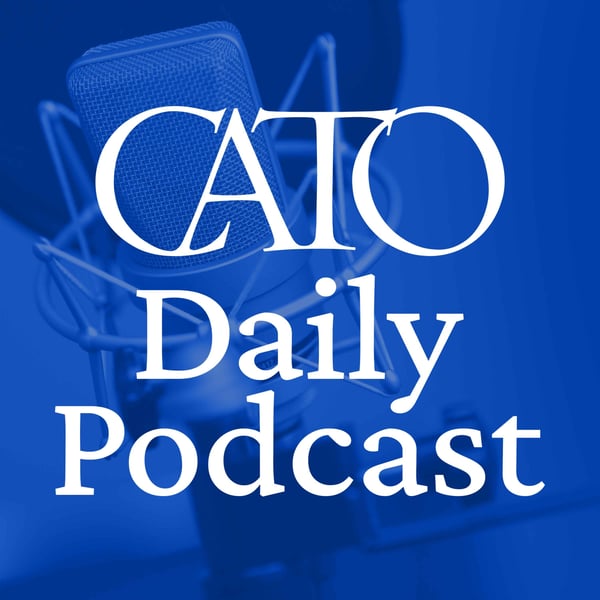What Obama Should Have Said on Libya
Cato Daily Podcast
Cato Institute
4.6 • 949 Ratings
🗓️ 30 March 2011
⏱️ 8 minutes
🧾️ Download transcript
Summary
Transcript
Click on a timestamp to play from that location
| 0:00.0 | This is the Cato Daily Podcast for Wednesday, March 30, 2011. |
| 0:06.4 | I'm Caleb Brown. |
| 0:07.6 | The President offered cold comfort in his speech on Libya failing to justify his actions |
| 0:12.4 | based on U.S. security. |
| 0:14.0 | Chris Preble, Director of Foreign Policy Studies at the Cato Institute, offers a glimpse of what the president should have said, |
| 0:20.0 | questions what precedence this might set for future uses of the US military? |
| 0:27.0 | For you to have been satisfied with the president's speech, |
| 0:31.0 | what did he need to come prepared to say? |
| 0:35.7 | What did he need to articulate? |
| 0:38.2 | Well, to be perfectly, Frank, I would have been satisfied |
| 0:40.3 | if he said, I made a horrible mistake. |
| 0:41.8 | I'm sorry, I won't do that again, which is to say send |
| 0:45.5 | U.S. military personnel and launch military action from U.S. planes and Ships on a mission that had no tangible connection to U.S. national |
| 0:57.0 | security. He obviously wasn't going to do that. I would have been at least |
| 1:02.0 | mollified if he had attempted to explain the military mission, |
| 1:06.6 | if he had clarified the end state and therefore put some parameters around the likely costs and most importantly if he had |
| 1:15.3 | explained why what it was about this particular intervention that made it |
| 1:20.6 | unique and and not a precedent for future action. |
| 1:24.7 | He didn't do that on any of those three counts. |
| 1:27.1 | First of all, he attempted last night to claim there is a national interest at stake, but the national interest is not a security interest, it is a moral interest, which presumably applies not just to the United States, but to all of of humanity when there is the risk of great harm |
| 1:46.2 | to civilians that not just the United States but all countries should feel an obligation to act. |
| 1:54.8 | As a practical matter, it doesn't work that way at all. |
... |
Please login to see the full transcript.
Disclaimer: The podcast and artwork embedded on this page are from Cato Institute, and are the property of its owner and not affiliated with or endorsed by Tapesearch.
Generated transcripts are the property of Cato Institute and are distributed freely under the Fair Use doctrine. Transcripts generated by Tapesearch are not guaranteed to be accurate.
Copyright © Tapesearch 2025.

